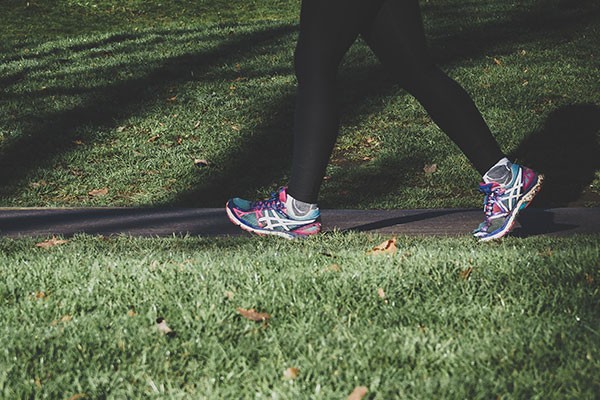Running Keeps Women Young but Ages Men?

Running ages men but women stay young?
Funded by the British Heart Foundation, Cardiac Risk in the Young, and presented at the British Cardiovascular Society, the study, reported that older male athletes had a stiffer aorta.
The aorta is the largest artery in the human body, responsible for carrying oxygen-rich blood away from the heart to the rest of the body and the brain.
The researchers used heart MRI scans and reported the vascular age of a male athlete’s aorta was 10 years older than its actual age!
But female athletes showed no difference.
So, who were the study subjects exactly?
They were 300 ‘masters’ athletes - those over 40 years old who had taken part in over 10 endurance events and had exercised regularly for at least 10 years.
Fifty percent of them were male, and the other half were female. The subjects were mainly made up of distance runners but also included cyclists, swimmers and rowers.
The researchers also investigated the vascular age of different sections of the aorta and found:
- The greatest difference in the descending aorta, which for male athletes, was on average 15 years older than their chronological age. (This is the section of the aorta that runs through the chest)
- But in female athletes, it was, on average, six years younger!
So why is this?
Well, the research couldn’t identify why, but it suggests that long-term endurance exercise might impact men differently than women.
The study leader, Dr Rebecca Hughes, said that in non-athletes, aortic stiffening is associated with heart and circulatory diseases. And just how this finding applies to potential risk in athletes is not yet fully understood.
Dr Hughes insists that more research will need to be carried out to help identify who could be more at risk.
And professor James Leiper, Associate Medical Director at the British Heart Foundation (BHF), says that for athletes who take part in endurance exercise, their hearts must work harder to pump blood around the body.
And in some cases, this causes changes to the heart, like what we’ve seen in this study.
But Professor Leiper insists too that further research needs to see exactly what effect vascular stiffening has in male athletes – how it might affect other areas of the cardiovascular system – before any definitive conclusions can be made.

Ok, so should men stop running?
The researchers say, no!
They remind us that exercise is proven to reduce the risk of heart and circulatory diseases, helping to control weight and lower both blood pressure and cholesterol.
They stress the benefits of running far outweigh any potential risks and encourage us to keep running regularly.
Of course, like just about anything in life – moderation is key.
Keep in mind, that these study subjects had taken part in over 10 endurance events and had exercised regularly for at least 10 years. This is not someone going on a jog 1-2 times per week.
For example, this observational study found that weekly running for less than 51 minutes and less than 9.6 kilometres, 1-2 times at less than 9.66 km/h, was sufficient to reduce the risk of mortality, compared with not running.
Compared with non-runners, runners had 30% and 45% lower adjusted risks of all-cause and cardiovascular mortality, respectively, with a 3-year life expectancy benefit.
Amazingly, even 5-10 minutes of running per day at less than 9.6 kilometres was linked to
reduced risks of death from all causes and cardiovascular disease.
So how much running is too much?
In another observational study, researchers tracked over 52,000 people for 30 years.
And they found the positive effects diminished among people who ran more than 32 kilometres per week, more than six days a week, or faster than 12.9 kilometres per hour.
They added the ideal amount is 8 kilometres to 30 kilometres per week, at 9-11 kilometres per hour, spread throughout three to four sessions per week.
The runners who stuck to these guidelines saw the greatest health benefits: their risk of death dropped by 25 percent.
So, if we’re not overdoing it, we’re actually extending our life span.

The bottom line on too much running
Too much endurance running ages a man’s aorta by up to ten years. But this doesn’t seem to occur in women. But this was for men who'd taken part in over 10 endurance events and had exercised regularly for at least 10 years.
Research shows the limit is no more than 32 kilometres per week, six days a week, and no faster than 12.9 kilometres per hour. The sweet spot seems to be 8 kilometres to 30 kilometres per week, at 9-11 kilometres per hour, spread throughout three to four sessions per week. This reduced the risk of death by 25 per cent.
References:
Lee DC, Pate RR, Lavie CJ, Blair SN. Running and all-cause mortality risk - is more better? Medicine & Science in Sports & Exercise. 2012;44(5):S699.
Lee DC, Pate RR, Lavie CJ, Sui X, Church TS, Blair SN. Leisure-time running reduces all-cause and cardiovascular mortality risk [published correction appears in J Am Coll Cardiol. 2014 Oct 7;64(14):1537]. J Am Coll Cardiol. 2014;64(5):472-481. doi:10.1016/j.jacc.2014.04.058
White HJ, Bordes S, Borger J. Anatomy, Abdomen and Pelvis, Aorta. 2021 Jul 31. In: StatPearls [Internet]. Treasure Island (FL): StatPearls Publishing; 2022 Jan–. PMID: 30726004.














































